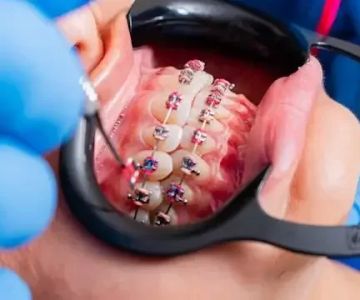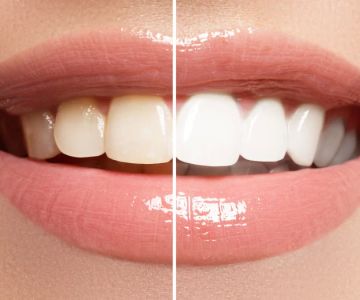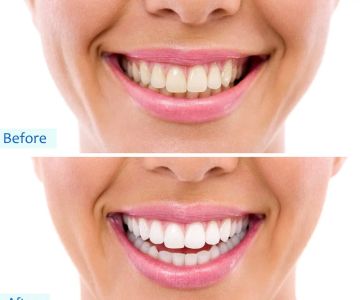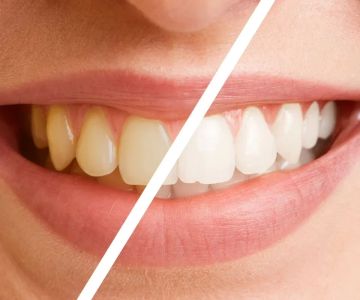Can Teeth Whitening Cause Sensitivity? Understanding the Risks and Solutions
- 1. Introduction to Teeth Whitening
- 2. What is Teeth Whitening Sensitivity?
- 3. Common Causes of Sensitivity After Teeth Whitening
- 4. How Long Does Sensitivity Last?
- 5. Preventing Sensitivity When Whitening Your Teeth
- 6. Best Teeth Whitening Products for Sensitive Teeth
- 7. Home Remedies for Teeth Whitening Sensitivity
- 8. When to Consult a Dentist About Sensitivity
- 9. Personal Case Studies on Teeth Whitening Sensitivity
- 10. Teeth Whitening Side Effects and Alternatives
- 11. Dentistry Toothtruth Recommendations
1. Introduction to Teeth Whitening
Teeth whitening has become a popular cosmetic procedure, helping people achieve a brighter, more confident smile. Whether you are using over-the-counter products or undergoing professional whitening treatments, it is important to understand the potential side effects, including sensitivity. This article dives into whether teeth whitening can cause sensitivity, and if so, what you can do to manage it effectively.
2. What is Teeth Whitening Sensitivity?
Sensitivity refers to the discomfort some people feel after whitening their teeth, particularly to hot or cold stimuli. This discomfort can range from mild to severe and can occur during or after a whitening procedure. Understanding this phenomenon is crucial for anyone considering whitening their teeth, as it can help manage expectations and alleviate concerns.
3. Common Causes of Sensitivity After Teeth Whitening
Sensitivity following teeth whitening can stem from a few key factors:
- Hydrogen Peroxide or Carbamide Peroxide: The active ingredients in many whitening products can penetrate the enamel and reach the sensitive layers underneath, causing irritation.
- Weakened Enamel: If your enamel is already thin or weakened due to age or habits like grinding your teeth, whitening can exacerbate sensitivity.
- Pre-existing Sensitivity: If your teeth are already prone to sensitivity, whitening products can amplify this issue.
4. How Long Does Sensitivity Last?
The duration of sensitivity after whitening can vary greatly depending on the individual and the type of treatment used. Generally, any discomfort experienced during the whitening procedure should subside within a few hours. However, for some, the sensitivity may persist for a few days or even weeks. Typically, this is temporary, and as the whitening effect stabilizes, sensitivity diminishes.
5. Preventing Sensitivity When Whitening Your Teeth
To reduce the chances of experiencing sensitivity during or after whitening, consider the following tips:
- Use Low-Strength Products: Opt for whitening products with lower concentrations of hydrogen peroxide or carbamide peroxide to minimize irritation.
- Pre-Treatment Care: Using toothpaste for sensitive teeth before and after whitening can help desensitize your teeth.
- Avoid Over-Whitening: Whitening your teeth too frequently or for too long can increase the likelihood of sensitivity. Stick to the recommended treatment time.
6. Best Teeth Whitening Products for Sensitive Teeth
If you have sensitive teeth, it's essential to select products designed with this in mind. Look for options that contain ingredients like potassium nitrate or fluoride, which can help reduce sensitivity while still providing effective whitening. Some recommended products include:
- Colgate Sensitive Whitening Toothpaste: A gentle yet effective option for whitening without causing discomfort.
- Opalescence Go Whitening Gel: This professional-grade gel is designed to minimize sensitivity while delivering noticeable results.
7. Home Remedies for Teeth Whitening Sensitivity
If you experience sensitivity after whitening, there are several home remedies you can try to ease discomfort:
- Saltwater Rinse: A warm saltwater rinse can help soothe the nerves in your teeth and reduce sensitivity.
- Desensitizing Toothpaste: Switch to a toothpaste formulated for sensitive teeth, which can help reduce pain.
- Cold Compress: Applying a cold compress to the outside of your mouth may help alleviate discomfort.
8. When to Consult a Dentist About Sensitivity
While sensitivity after whitening is common, it’s important to consult a dentist if the discomfort persists for more than a week or becomes unbearable. Your dentist can evaluate the cause of the sensitivity and may recommend professional treatments, adjustments to your whitening regimen, or more personalized solutions.
9. Personal Case Studies on Teeth Whitening Sensitivity
Real-life experiences can often provide valuable insights into what to expect from teeth whitening. For example, Emily, a 32-year-old from California, experienced heightened sensitivity after using an over-the-counter whitening product. By switching to a fluoride-based gel and reducing the frequency of use, her sensitivity gradually subsided within a week. Such case studies show that managing sensitivity is often a matter of finding the right product and treatment schedule for your individual needs.
10. Teeth Whitening Side Effects and Alternatives
While teeth whitening is generally safe, there are some side effects to be aware of, including gum irritation and uneven whitening. If you’re concerned about sensitivity or other potential issues, you might consider alternatives like whitening toothpaste or professional whitening treatments that are less likely to cause discomfort.
11. Dentistry Toothtruth Recommendations
If you are looking for more personalized advice or professional whitening services that minimize sensitivity, visit Dentistry Toothtruth. Our expert team can help guide you through the process, recommend the best products, and ensure your teeth stay healthy and beautiful.
For more information, visit Dentistry Toothtruth to explore our range of services and products.







 Da Vinci Dental Specialists
Da Vinci Dental Specialists Dental Smiles of West Chicago
Dental Smiles of West Chicago Kellyn Hodges Orthodontics
Kellyn Hodges Orthodontics Gentle Dental Cambridge
Gentle Dental Cambridge Westlake Family Dentistry
Westlake Family Dentistry Tooth Bud Pediatric Dentistry
Tooth Bud Pediatric Dentistry The Importance of Oral Health Education During Pregnancy for a Healthy Pregnancy
The Importance of Oral Health Education During Pregnancy for a Healthy Pregnancy Why Skipping Dental Checkups Can Lead to Bigger Oral Health Problems
Why Skipping Dental Checkups Can Lead to Bigger Oral Health Problems Advantages of Porcelain Dental Restorations
Advantages of Porcelain Dental Restorations Best Tips for Brushing Your Teeth Properly for Healthy Gums: Essential Techniques for Oral Health
Best Tips for Brushing Your Teeth Properly for Healthy Gums: Essential Techniques for Oral Health How Can Diabetes Cause Tooth and Gum Problems? Preventing and Managing Oral Health Issues
How Can Diabetes Cause Tooth and Gum Problems? Preventing and Managing Oral Health Issues Healthy Habits for Promoting Good Oral Health and Hygiene: Tips for a Healthy Smile
Healthy Habits for Promoting Good Oral Health and Hygiene: Tips for a Healthy Smile